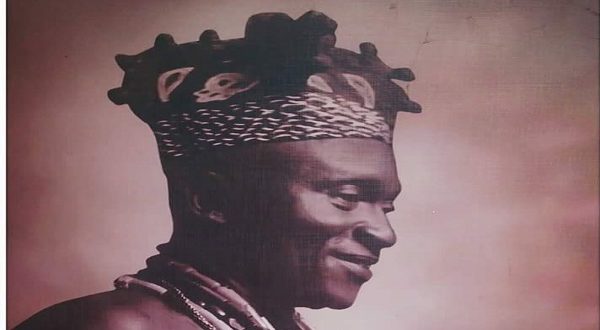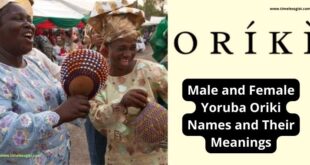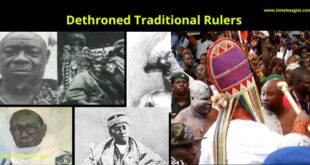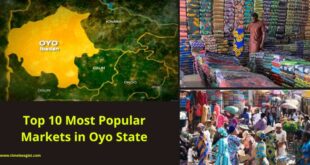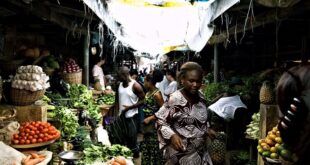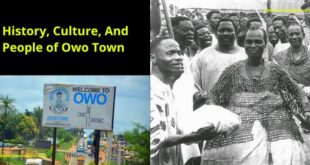Oba of Lagos, Oba Adeyinka Oyekan II was the immediate Paramount ruler of Lagos between 1965 and 2003. Oba Oyekan born in 1911 reigned as Oba for 38yrs.
He was crowned Oba in 1965 amidst funfare. For those who would like to know what Lagos coronation looks like, enjoy this short documentary shot by Chief Olu Holloway.
Adeyinka Oyekan II (June 30, 1911 – March 1, 2003) was Oba of Lagos from 1965 to 2003. He was the grandson of Oba Oyekan I
| Reign | 1965 – 2003 |
| Coronation | 1965 |
| Predecessor | Adeniji Adele |
| Successor | Rilwan Akiolu |
| Born | Adeyinka Oyekan, 30 June 1911 , Lagos, Nigeria |
| Died | March 1, 2003 (aged 91), Lagos |
| Burial | Iga Idunganran |
| House | Ologun Kutere |
| Father | Prince Kusanu Abiola Oyekan |
| Religion | Christianity |
Also read: Top 10 Recruiting NGO Jobs in Nigeria you Should Explore
A story from facbook written by Prof. Siyan Oyeweso wrote as follows ;
REMEMBERING OBA ADEYINKA AKINOLA OYEKAN II (CFR) JUNE 1911-MARCH 2003)
“There is a time for everything,
And a season for every activity under heaven:
A time to be born and a time to die….” Ecclesiastes
When a new king is installed in Yorubaland the popular prayer is “Ki ade pe lori, ki bata, pe lese. Ki ase pe lenu. Esin a je koriko oba pe”. This translates thus: “Long may the beaded crown remain on your head. Long may the shoes remain on your feet. May you reign long and happily over us. May the King horse feed fat on King’s grass for long.” This prayer has been answered in the Life and Times of Oba Adeyinka Oyekan II, the Oba of Lagos, who passed away on Friday, March 7, 2003.
He ascended the throne of his ancestors in 1965 and reigned for 38 years. He was blessed with good and robust health. His reign was peaceful. He died at the ripe age of 92 years. He was installed on March 11, 1965 and left on March 7. The ides of March has been fulfilled.
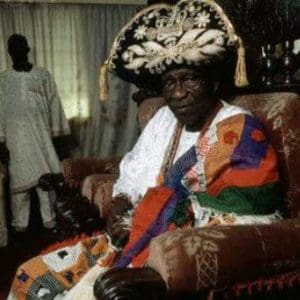
Prior to the official announcement of his passage on March 7, 2003 rumours had filtered to the press and the general public that the peoples’ monarch was in bad state of health or that he had died. While it was confirmed that Oba Oyekan was actually ill and having a bed rest at St. Nicholas Hospital; his death was denied. For in Yoruba society, kings don’t die, they only go to Iwale-Asa. They only change mortality for immortality.
By March 7, March it became public knowledge that Oba Adeyinka Akinola Oyekan II had joined his ancestors. The great grandson of the 12th Oba of Lagos, Oba Oyekan 1 (1885-1900) had transposed to another plane. The son of Prince Kuhsanu Abiola Oyekan is no longer with us in physical flesh. The husband of Olabisi, Christine, Toyin, Rashidat and Abioye can no longer be reached by his wives, children and ordinary mortals except in dreams.
As at 2003, Oba Adeyinka Akinola Oyekan II, the Oba of Lagos for thirty-eight years was certainly the longest-reigning traditional ruler in contemporary Nigeria. At the age of 92 years, he belonged to the realm of those selected few whom it has pleased the Almighty God to endow with long life, good health, honour, integrity, riches and other good things of life which only God can give. At 92, Oba Oyekan’s divine vigour brings to the fore, the truism in the words of James Abraham Garfield, the 20th President of the United States: “If wrinkles must be written upon brows, let them not be written upon the heart. The spirit should never grow old”. Oba Oyekan was certainly active, dynamic and vigorous till death. He was quite a master of his environment and very young at heart.
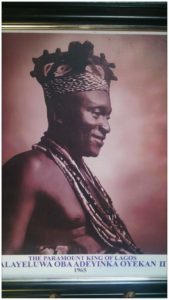
Born in Lagos on June 30, 1911, Oba Oyekan II was educated at the Methodist School, Eko Boy’s High School and Kings College, all in Lagos. He also studied Pharmacy at the Yaba School of Pharmacy between 1930 and 1932, where he obtained a Diploma in Pharmacy. He rounded-up his educational pursuits at Edinburgh University in the United Kingdom.
Before he ascended the throne of his forefathers, he served as a Pharmacist with the Methodist Mission at Amachara and Umuahia in the then Eastern Region. He was also a sergeant in the Third Field ambulance, 81st (W. A.) Division during the 2nd world war. Thereafter, he became government Pharmacist and Dental Technologist at the Ministry of Health, Lagos, after which he opted for private practice.
Prince Akinola Oyekan was brought up under a strict Methodist tradition and even 38 years on the throne of Lagos did not alter his Christian life. He remained till death a strong member of the Methodist Church. He was also a former Sunday school teacher His Christian life not withstanding, Oba Oyekan in his life time served as the repository of the history, culture and traditions of indigenous Lagosland.
Oba Oyekan was a widely travelled traditional ruler and a cosmopolitan citizen of the world. His experiences as a widely travelled man was brought to bear on his leadership style which keen observers of Lagos society have described as diplomatic, mature and highly transparent. It was in recognition of his leadership attributes that he was conferred with the national honour of Commander of the Federal Republic (CFR).
However, the road to the throne of Lagos was long and tortuous for Oba Oyekan.
His battle to claim his inheritance lasted sixteen years while the epic struggle brought to the fore some of his leadership traits; resilience, tenacity of purpose, deep sense of history and a firm commitment to social justice. Way back in 1949, on the death of Oba Falolu, the then Prince Oyekan and the Dosunmu ruling House believed that it was their turn to produce the Oba. Indeed, Prince Oyekan led his family to challenge Falolu’s Successor, Oba Musendiku Adeniji Adele II, for wrongful possession of the Iga idunganran. It was a battle royale which now constitutes a watershed in the history of Lagos. Prince Oyekan remained undaunted throughout the years that the legal battle lasted from the Magistrate court to the Privy Council.
The Dosunmu family led by Oba Oyekan then took the case further to the Lordship Council Chambers at Downing Street, London, in June 1957, ostensibly, to make an historical statement and create an opportunity for the court of public opinion to further hear their case. In spite of tireless efforts, the judgment was still delivered in favour of Oba Adele. Sequel to the death of Adele, however, the efforts of Dosunmu family which Oba Oyekan symbolized was adequately rewarded when he was recalled from his No 7, Garber Square, residence in Lagos and subsequently installed as the 18th Oba of Lagos in 1965. With his ascendancy to the throne at Iga-Opo-Ide during a series of traditional rites, Adeyinka Akionla Oyekan opened yet another chapter in the history of Lagos.
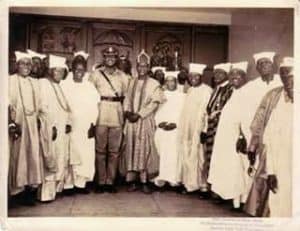
Also read: Olojo Festival – History of ILE IFE and Celebration of Olojo – Research
One landmark achievement of Prince and later Oba Oyekan was the creation of an autonomous Lagos State. The Action Group (AG) position in the 50’s and till mid sixties was that Lagos, as a Yoruba city, must be included in the Western Region while the city also continued to remain as the Federal Capital. Prince Oyekan and many other eminent Lagosians such as Chief Fagbenro Beyioku felt threatened by the actions of Action Group politicians particularly when they started moving industries from Lagos and relocating them to Ikeja. In fact, it was Prince Oyekan who popularized the slogan of “Gedegbe L’Eko wa”- “Lagos is separate, autonomous and independent”. And in spite of the threats in some quarters that the west would secede from the Federation, if an autonomous Lagos state was carved out, Prince Oyekan stood his ground. He was unwavered.
As a prince and later as an Oba, Adeyinka Oyekan was one of the major proponents for the creation of Lagos State. He spoke openly, fearlessly and relentlessly with others until the state was created in May 1967. The late Prof. Aliyu Babatunde Fafunwa confirms thus in a 1970 publication “If it were not for Oba Oyekan, Brigadier Mobolaji Johnson and other illustrious sons and daughters of Lagos Division, Lagos would have become an appendage of some neighbouring of states of the federation! with the creation of Lagos State in 1967, Lagos people for the first time since Lagos was ceded to the British in 1861, became once again, a self-governing people without franchise; indeed we were still a colonial people even after independence. With the creation of Lagos State, we have equal status with all other Nigerians.”
Since the enthronement of Oba Oyekan in 1965, so much has happened positively to the politics, tradition, and culture of Lagos. However, the first significant and positive development witnessed by the monarchy of Lagos after Oyekan’s ascension took place in May 1967 when the paramount of the Oba’s authority was extended beyond Lagos island as a result of the creation of Lagos State, comprising Badagry, Ikeja, Lagos, Ikorodu, and Epe.
Since then too, Lagos has witnessed tremendous growth and development politically, socially, and economically. Today, every citizen and resident of Lagos State looks up to the Oba of Lagos as the leading monarch, a royal father, a peace-maker, and a veritable source of inspiration. Oba Oyekan’s life has become a sort of a successful life.
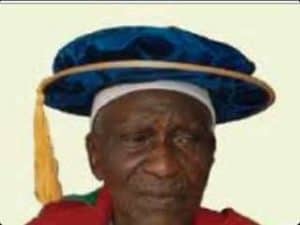
In all his years as the Oba of Lagos, Oba Oyekan managed the palace with so much wisdom that the Iga did not witness any significant leadership crisis. In all circumstances, he led by example and brought reverence to the royal stool of Lagos. Oba Oyekan wisely avoided wading in political matters, thereby sustaining his status as the father of all, notwithstanding their political inclination. Yet this did not deter him from speaking against injustices perpetrated by successive governments against the people. Thus, he stood resolutely against the annulment of June 12, 1993 presidential election which was won by Bashorun M.K.O. Abiola.
Oba Oyekan was born on June 30, 1911, three years before the formal creation of the Nigerian State by Lord Lugard in 1914. By his death at the age of 92, Oba Oyekan represented an important bridge-head, between the Nigerian State of the 20th and 21st Centuries.
At 92, he saw the beginning and the end of the tenures of all Nigeria’s Colonial Governors, viz: Governor – General Sir F.J.D. Lugard (1914-1919), Sir. H.C. Clifford (1919-1925), Graeme Thompson (1925-1931), Sir Bernard Bourdillion (1935-1943), Sir Arthur Richards (1943-1947), Sir John Macpherson (1948-1955), Sir James Robertson (1955-1960). He also saw the beginning of Nigeria’s self-rule and witnessed successive military and civilian administrations of the Nigerian state until the eve of the Fourth Republic.
At 92, Oyekan was also the oldest monarch in contemporary Yorubaland of his time. In terms of age and tenure, he was only compatible with the late Ooni of Ife, Oba Adesoji Aderemi; the late Olowo of Owo, Oba Olateru Olagbegi and the late Timi of Ede, Oba Adetoyese Laoye. Oba Adesoji Aderemi was on the throne for fifty years (1930-1980) while the Olowo and the Timi spent well over thirty years on the thrones of their forefathers. Today, only the incumbent Awujale of Ijebuland and the incumbent Alaafin of Oyo could lay claim to more than four to five decades on their thrones
Sequel to Oba Oyekan installation, he and other natural rulers initiated the National Conference of Traditional rulers. As the Permanent Chairman of Lagos Council of Obas and Chiefs, Oyekan was the mouthpiece of the Council on important national issues. His primary concern was the progress of Lagos State and the advancement of the Yoruba people from all walks of life. He was also an ardent believer in the unity and stability of the Nigerian nation. Beyond the shores of Nigeria, Oba Adeyinka Oyekan played the role of an unofficial ambassador at large for Nigeria, particularly Brazil, Sierra-Leone, Portugal, and the Carribbeans.
Oba Oyekan also worked very hard early in his career and succeed largely in indearing himself to his subjects. He loved his subjects and they also appreciated him as their monarch. Oba Oyekan loved the good life. He loved his cigar. He was also fond of his Heineken Beer. He was also at home with his wives and children. He gave them good upbringing and sound education.
The society which Oba Oyekan served too also appreciated him. He had served as far back as 1992 as the Chancellor, University of Agriculture, Markurdi, where he was also conferred with honorary Doctor of Science (D.Sc). The Lagos State University which was dear to his heart also conferred on him Honorary Doctor of Science at the 2000 Convocation Ceremony during the tenure of late Prof. Fatiu Akesode. At the time of his death, he was also the Chancellor, University of Agriculture, Abeokuta (UNAAB).
Oba Oyekan lived and reigned to uphold the dignity of traditional institutions in Nigeria. As the peoples’ monarch, he had a cosmopolitan attitude to life and this partly accounts for the diverse origins of the number of Nigerians and foreign nationals he conferred with chieftaincy titles. He was a great lover of the people of Lagos state; a great Nigerian and useful citizen of the World. By his death, the country had lost a just, dignified, regal, and charismatic monarch.
Oba Oyekan now belongs to the ages. Yet his memory will always be fresh particularly for those who interacted with him at a very close distance. He was fond of my mentor, late Prof. Fatiu Ademola Akesode, and thus conferred on him the Aare Baseegun of Lagos. In the same token, he conferred the title Baajiki and Baapitan on Professor Abisogun Olubode Leigh and my humble self respectively. He was a man of faith-faith in himself, faith in his cause, faith in his tiny club of friends, and faith in God. Thirteen years after his sojourn to immortality, we still miss his counsel, wisdom, and laughter. Today as always, we celebrate Oba Adeyinka Oyekan II. His was a life well spent in the service of the Lagos people, Nigeria, and humanity at large.
OLOWO EKO,BABA KOFOWOROLA
OMO IROKO ILADO OMO OSANYINLAWE
OMO ABA EGUNSE, MA BA ENIA SE
OMO A BA’GI JA,MA BA ENIA JA
OMO IGI WERE, WERE LODE ILADO
AKI FI OKO RO, A KI FI ADA RO
BI A KO BA RO TAN,A KO GBODO KURO NIBE
OMO ILE KUN, ODEDE KUN, ALARA GBAYIDA
ANYO NINU EGBE DARADARA
A NLE BO LEHIN, O NLE ARA IWAJU
OMO IWAJU OLOKO A MA SO OWO
EHIN OLOKO A SO EJIGBA ILEKE
OGODEGEDE OLOKO A TAN YEBE L’OJU OMI
SUN RE O
